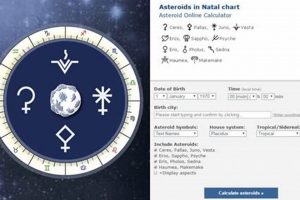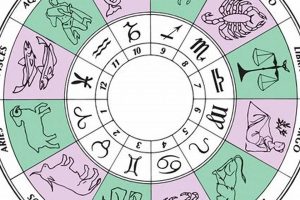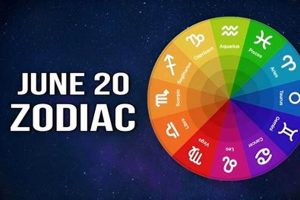In astrology, Juno represents commitment, marriage, and long-term partnerships. It reveals how an individual approaches these unions, highlighting their needs and expectations within a committed relationship. For example, Juno in Libra might suggest a strong desire for balance and harmony in partnerships.
Understanding this asteroid’s placement within a birth chart offers valuable insights into relationship dynamics. It can illuminate potential challenges and strengths related to commitment, compromise, and the quest for lasting bonds. Historically, Juno, named after the Roman goddess of marriage and childbirth, has been associated with the legal and contractual aspects of relationships, further emphasizing its connection to long-term commitments.
This exploration will delve further into the significance of Juno in various astrological signs and houses, providing a deeper understanding of its influence on relationship patterns and the pursuit of enduring connections.
Understanding Committed Relationships Through Astrological Insights
These tips offer practical guidance for interpreting the influence of the asteroid Juno within an astrological birth chart, focusing on its implications for long-term relationships and commitment.
Tip 1: Identify Juno’s Sign: Locating Juno’s zodiac sign provides insights into the qualities one seeks in a partner and the overall style of relating within committed relationships. Juno in Aries, for instance, might suggest a desire for independence and excitement within partnerships.
Tip 2: Examine Juno’s House Placement: The astrological house containing Juno reveals the area of life where commitment is most significant and where one is likely to experience the most profound growth through partnerships. Juno in the seventh house, for example, often emphasizes the importance of traditional partnerships.
Tip 3: Consider Juno’s Aspects: Analyzing Juno’s aspects to other planets offers further nuances. A harmonious aspect to Venus might indicate ease in attracting and maintaining loving relationships, while challenging aspects might suggest recurring relationship patterns that require attention.
Tip 4: Research Juno’s Mythology: Exploring the mythology surrounding Juno can offer a deeper understanding of its astrological significance. Understanding the goddess’s role in Roman mythology provides context for interpreting its influence in individual charts.
Tip 5: Integrate Juno with Other Relationship Indicators: While Juno offers valuable insights, it is essential to consider it in conjunction with other astrological factors related to relationships, such as Venus and the seventh house, for a comprehensive understanding.
Tip 6: Apply Juno’s Wisdom Practically: Use the insights gained from Juno’s placement to foster greater self-awareness and improve relationship dynamics. Recognizing personal needs and expectations within partnerships allows for more conscious and fulfilling connections.
By understanding Juno’s influence, individuals can gain a deeper understanding of their relationship patterns, leading to more fulfilling and conscious partnerships.
This understanding lays the groundwork for exploring deeper astrological concepts and applying these insights to enhance personal growth and relationship harmony.
1. Commitment
Within the framework of astrological interpretation, commitment represents a cornerstone of Juno’s influence. This celestial body illuminates the nature of dedication and the dynamics of long-term partnerships, providing insights into an individual’s approach to enduring bonds.
- The Nature of Commitment
Juno’s placement describes the type of commitment an individual seeks. This may manifest as a desire for legal marriage, a committed cohabitation, or a deep emotional bond. For example, Juno in Capricorn may suggest a preference for traditional, structured commitments, while Juno in Aquarius might signify a more unconventional approach.
- Challenges and Growth within Commitment
Juno also highlights potential challenges individuals may encounter within committed relationships. These challenges serve as opportunities for growth and understanding. Someone with Juno square Saturn, for example, might experience difficulties with emotional vulnerability or fear of restriction within partnerships, offering valuable lessons in overcoming these limitations.
- Evolution of Commitment
Juno’s influence is not static. As individuals mature, their understanding and experience of commitment evolve. Transits and progressions involving Juno can signify periods of significant change and development within existing relationships or the potential for new, meaningful connections. For example, a Juno return can be a time of reassessing relationship needs and making significant choices.
- Commitment Beyond Romantic Relationships
While often associated with romantic partnerships, Juno’s influence extends to other forms of commitment. This can include dedication to a career, a social cause, or a creative pursuit. Juno’s placement can offer insights into the areas of life where individuals invest their deepest loyalty and dedication.
Understanding Juno’s influence on commitment provides a valuable framework for navigating relationships and pursuing meaningful connections. By exploring the nuances of this asteroid’s placement, individuals can gain self-awareness and cultivate more fulfilling, conscious partnerships. Further exploration of Juno’s interplay with other astrological factors can deepen this understanding, revealing a comprehensive picture of an individual’s relationship dynamics.
2. Marriage
Within the context of astrological interpretation, Juno’s association with marriage signifies more than just the legal contract; it represents the dynamics of long-term partnership, revealing insights into an individual’s expectations, needs, and potential challenges within such unions. Examining Juno’s placement provides a nuanced perspective on one’s predisposition towards committed relationships and the potential for growth within them.
- The Idealized Partnership
Juno’s position in the birth chart can reveal an individual’s idealized vision of marriage. This includes the qualities sought in a partner, the desired level of intimacy, and the overall dynamic envisioned for the relationship. For example, Juno in Leo might suggest a desire for a vibrant, expressive partnership, while Juno in Virgo might indicate a preference for a grounded, supportive union.
- Negotiating Power Dynamics
Juno also illuminates potential power imbalances within a marriage. Its placement can highlight areas where an individual may struggle with asserting their needs or maintaining healthy boundaries. For example, Juno in Libra might suggest a tendency to prioritize harmony over individual needs, leading to potential imbalances. Recognizing these patterns allows for conscious navigation of power dynamics and the development of more equitable partnerships.
- Evolution within Marriage
Marriage is a dynamic process, and Juno’s influence reflects this evolution. Transits and progressions involving Juno can signify periods of growth, change, or challenge within the marriage. These astrological events can prompt individuals to reassess their needs, renegotiate boundaries, and deepen their connection. A challenging aspect from transiting Uranus to natal Juno, for instance, could indicate a period of disruption or a need for greater independence within the partnership.
- Marriage as a Mirror
Juno’s placement in the birth chart can also be interpreted as a mirror, reflecting back unresolved emotional patterns or unmet needs. Through the challenges and triumphs experienced within marriage, individuals have the opportunity to gain self-awareness and address these deeper psychological issues. For example, recurring conflicts related to jealousy, indicated by a challenging aspect to Pluto, might highlight the need to address insecurities and cultivate greater trust within the relationship and oneself.
Understanding Juno’s influence on marriage offers a valuable framework for navigating the complexities of long-term partnerships. By examining these facets and integrating them with other relationship indicators within the birth chart, individuals can gain deeper insights into their relationship patterns and cultivate more fulfilling, conscious unions.
3. Long-Term Partnerships
Within astrological frameworks, the asteroid Juno signifies commitment and its complexities within long-term partnerships. Juno’s placement in a birth chart offers insight into an individual’s approach to such unions, revealing their needs, expectations, and potential challenges. This understanding extends beyond romantic relationships, encompassing any committed bond, including business partnerships or close friendships. The position of Juno by sign and house reveals how one seeks commitment and the areas of life where it holds the most significance. For example, Juno in Taurus might suggest a desire for stability and security within partnerships, while Juno in the eleventh house could indicate a focus on shared goals and community involvement within these bonds.
Examining Juno’s aspects to other planets provides further nuances. Harmonious aspects might suggest ease in forming and maintaining long-term connections, while challenging aspects could indicate recurring patterns or areas requiring growth. A conjunction between Juno and Saturn, for instance, might signify a tendency towards cautiousness or a fear of commitment, whereas a trine to Venus could indicate a natural ability to attract and nurture harmonious partnerships. Real-life examples illustrate these dynamics. Individuals with Juno conjunct their Sun often prioritize their partnerships, placing significant emphasis on shared values and mutual respect. Those with Juno square Pluto, however, might experience power struggles or intense emotional dynamics within their committed relationships.
Practical application of this knowledge allows for conscious navigation of long-term partnerships. Understanding one’s own Juno placement facilitates self-awareness regarding relationship patterns, enabling individuals to address potential challenges and cultivate healthier dynamics. Recognizing the Juno placement of partners offers insight into their needs and expectations, fostering empathy and facilitating more effective communication. Ultimately, astrological insights into Juno provide a valuable tool for fostering greater understanding and building more fulfilling, enduring connections. This understanding empowers individuals to approach commitment with greater awareness and navigate the complexities of long-term partnerships with increased clarity and intention.
4. Relationship Needs
Juno, within astrological contexts, signifies core relationship needs and their expression within committed partnerships. Juno’s placement by sign and house illuminates these needs, revealing what an individual requires to feel fulfilled and secure within a long-term bond. For instance, Juno in Cancer might suggest a need for emotional nurturing and a strong sense of family, while Juno in the fifth house could indicate a desire for playful self-expression and shared creative pursuits within the relationship. Understanding these needs is crucial for fostering healthy relationship dynamics and achieving lasting satisfaction.
Examining Juno’s aspects provides further insight into how these needs might manifest in practice. Harmonious aspects suggest a relative ease in fulfilling these needs, while challenging aspects could indicate recurring patterns of frustration or unmet expectations. A trine between Juno and Neptune, for example, might suggest a deep capacity for empathy and emotional connection, whereas a square to Mars could indicate a tendency towards conflict or difficulty asserting one’s needs effectively. Real-life examples demonstrate these principles. An individual with Juno conjunct Venus might effortlessly attract loving relationships and prioritize harmony, while someone with Juno opposite Saturn might experience challenges with vulnerability or fear limitations within partnerships.
Practical application of this knowledge empowers individuals to address their relationship needs consciously. Recognizing one’s own Juno placement facilitates self-awareness and allows for open communication with partners about these needs. Understanding a partner’s Juno placement cultivates empathy and facilitates meeting each other’s needs more effectively. Addressing these needs proactively strengthens the foundation of committed relationships and fosters greater intimacy and mutual understanding. This insight is crucial for navigating challenges, building stronger bonds, and fostering long-term relationship satisfaction.
5. Contractual Agreements
Within the framework of astrological interpretation, Juno’s association with contractual agreements highlights the formalization of commitments and the establishment of boundaries within partnerships. This facet of Juno’s influence extends beyond legal marriage contracts, encompassing any agreement that defines roles, responsibilities, and expectations within a relationship, including business partnerships, prenuptial agreements, or even unspoken agreements within friendships.
- Defining Roles and Responsibilities
Juno’s placement can illuminate how individuals approach the delineation of roles and responsibilities within a partnership. For example, Juno in Virgo might suggest a meticulous approach to defining these parameters, with a focus on practicality and clear expectations. Conversely, Juno in Pisces might indicate a more fluid approach, where roles and responsibilities evolve organically based on the needs of the relationship. This understanding facilitates effective communication and prevents misunderstandings regarding each partner’s contributions.
- Negotiating Terms and Conditions
Juno’s influence extends to the negotiation process within contractual agreements. Its placement can reveal an individual’s negotiation style, highlighting their strengths and potential blind spots. Juno in Libra, for instance, might suggest a diplomatic and compromising approach to negotiation, while Juno in Scorpio could indicate a more assertive and strategic style. Recognizing these tendencies allows for more effective negotiation strategies and mutually beneficial outcomes.
- Honoring Commitments and Agreements
Juno’s placement also reflects an individual’s capacity to honor commitments and adhere to agreements. Juno in Capricorn, for example, often signifies a strong sense of duty and responsibility within partnerships, prioritizing adherence to established agreements. Conversely, Juno in Gemini might suggest a more adaptable approach, where adjustments and renegotiations are more readily embraced. Understanding these tendencies provides insight into potential challenges or strengths related to maintaining long-term commitments.
- The Shadow Side of Contracts: Power Dynamics and Resentment
Juno’s association with contracts also highlights the potential for power imbalances and resentment. Unfair or unclear agreements can lead to dissatisfaction and conflict within the relationship. Juno aspects to challenging planets, such as Pluto or Mars, can further exacerbate these dynamics. Awareness of these potential pitfalls allows for proactive measures to ensure equitable agreements and address any power imbalances that may arise.
By understanding Juno’s influence on contractual agreements, individuals can navigate the complexities of commitment with greater awareness. This understanding allows for the establishment of clear expectations, equitable negotiations, and the development of sustainable, fulfilling partnerships. Integrating this knowledge with other facets of Juno’s astrological significance provides a comprehensive framework for understanding relationship dynamics and building stronger, more conscious connections.
6. Jealousy and Possessiveness
Within astrological interpretations, Juno’s association with jealousy and possessiveness reveals potential shadow aspects of commitment and the dynamics of long-term relationships. While Juno represents the desire for lasting partnership, its influence can also manifest as insecurity and a fear of loss, potentially leading to controlling behaviors. These tendencies often stem from unresolved emotional wounds or a deep-seated fear of betrayal. The placement of Juno in the birth chart, particularly its aspects to other planets, can offer valuable insights into these patterns. For example, a challenging aspect between Juno and Pluto might indicate a predisposition towards intense jealousy or possessiveness, while Juno in Scorpio could suggest a tendency towards suspicion or a fear of vulnerability within relationships. Real-life examples include individuals with Juno square Mars experiencing frequent conflicts stemming from jealousy or those with Juno conjunct Pluto exhibiting controlling behaviors within partnerships.
Addressing these shadow aspects is crucial for fostering healthy relationship dynamics. Astrological awareness provides a framework for understanding the root causes of these behaviors, allowing individuals to address underlying insecurities and cultivate healthier patterns of relating. Techniques such as shadow work, therapy, or open communication with partners can facilitate healing and transformation. Recognizing these tendencies within oneself allows for greater self-awareness and the development of healthier coping mechanisms. Understanding a partner’s Juno placement, particularly its challenging aspects, can foster empathy and facilitate compassionate communication around these sensitive issues. By acknowledging and addressing these shadow aspects, individuals can transform jealousy and possessiveness into opportunities for growth, fostering greater trust and intimacy within their relationships. For instance, recognizing a pattern of jealousy triggered by Juno transiting a sensitive point in the chart can empower individuals to address these feelings constructively rather than reacting defensively.
Integrating Juno’s influence with other relationship indicators in the birth chart provides a comprehensive understanding of relationship dynamics. While Juno sheds light on the potential for jealousy and possessiveness, its interplay with Venus, Mars, and the seventh house offers a more nuanced perspective. Addressing these complex dynamics empowers individuals to cultivate more secure, fulfilling, and conscious partnerships based on trust and mutual respect. Navigating these challenges successfully contributes to personal growth and fosters stronger, more resilient bonds within long-term relationships. Recognizing the connection between Juno, jealousy, and possessiveness allows for conscious relationship building, fostering a deeper understanding of commitment’s multifaceted nature.
7. Self-worth in relationships
Astrologically, Juno’s placement correlates with self-worth within committed partnerships. Juno’s sign and house position reveals how individuals value themselves in relationships, influencing their expectations and boundaries. Juno in Aries, for instance, might suggest a need for independent validation within partnerships, while Juno in the second house could indicate a connection between self-worth and shared resources or security. Compromised self-worth can manifest as accepting less than deserved or struggling to assert needs. Conversely, healthy self-worth fosters equitable partnerships based on mutual respect and appreciation. For example, individuals with Juno conjunct the Sun may naturally radiate confidence within relationships, whereas those with Juno square Chiron might experience recurring patterns of self-doubt or feelings of inadequacy within partnerships.
Understanding Juno’s influence on self-worth empowers individuals to cultivate healthier relationship dynamics. Recognizing personal patterns related to self-esteem within partnerships allows for conscious choices and the establishment of healthier boundaries. Individuals with Juno in challenging aspects might need to actively cultivate self-love and address recurring patterns of self-sabotage in relationships. Conversely, those with supportive Juno aspects can leverage this strength to build secure, fulfilling partnerships. Practical applications include setting clear boundaries, communicating needs effectively, and recognizing when a relationship compromises self-worth. Addressing these issues directly strengthens relationships and fosters personal growth. For example, someone with Juno opposite Saturn might need to overcome fears of vulnerability to build deeper connections, whereas someone with Juno trine Jupiter could leverage innate confidence to attract and maintain healthy, supportive partnerships.
Integrating Juno’s influence with other astrological factors offers a comprehensive understanding of relationship dynamics. While Juno illuminates self-worth within partnerships, its interplay with Venus, the Moon, and the Descendant provides deeper insights. Addressing self-worth issues proactively fosters personal growth and creates a foundation for building secure, fulfilling relationships based on mutual respect and appreciation. Recognizing the significance of Juno’s influence empowers individuals to navigate relationship challenges with greater awareness and cultivate healthier patterns of relating, ultimately contributing to greater relationship satisfaction and personal well-being. This understanding can be further enhanced by exploring the connections between Juno and other asteroids, such as Pallas and Vesta, to gain a complete picture of an individual’s relationship dynamics and self-worth within those contexts.
Frequently Asked Questions about Juno in Astrology
This section addresses common inquiries regarding Juno’s astrological significance, offering clarity and dispelling misconceptions.
Question 1: How does Juno differ from Venus in astrological interpretations regarding relationships?
While Venus represents romantic attraction and the experience of love, Juno signifies commitment, the long-term dynamics of partnership, and the individual’s needs within those bonds. Venus reveals what one finds aesthetically pleasing and how one expresses affection, whereas Juno reveals what one needs for a committed relationship to thrive.
Question 2: Is Juno’s influence limited to romantic relationships?
While often associated with romantic partnerships, Juno’s influence extends to any form of committed relationship, including business partnerships, close friendships, or even one’s commitment to a particular cause or career path. It reveals the dynamics of commitment and the individual’s needs within any long-term bond.
Question 3: How can one determine Juno’s placement in their birth chart?
Juno’s placement requires specialized astrological software or online chart calculators that include asteroids. One needs their birth date, exact time, and location to generate an accurate chart displaying Juno’s position by sign and house.
Question 4: Does Juno’s placement guarantee a successful marriage?
Astrology does not offer guarantees. Juno, like all astrological factors, represents potential and predisposition. Juno’s placement provides insight into relationship needs and patterns, but individual choices, external circumstances, and the dynamics between partners also contribute significantly to relationship outcomes.
Question 5: How does one work with challenging Juno aspects in their birth chart?
Challenging aspects to Juno represent opportunities for growth and self-awareness within relationships. These aspects highlight potential patterns of conflict or unmet needs, encouraging conscious effort to address these issues. Self-reflection, open communication with partners, and seeking professional guidance can facilitate navigating these challenges constructively.
Question 6: How does Juno’s influence evolve over time?
As individuals mature and evolve, their understanding and experience of commitment also change. Transits and progressions involving Juno can signify periods of significant development within existing relationships or the potential for new, meaningful connections. These astrological events offer opportunities for growth and deeper understanding of one’s relationship needs.
Understanding Juno’s astrological significance provides valuable insight into relationship dynamics and personal needs within committed partnerships. This knowledge empowers individuals to navigate relationships with greater awareness and cultivate healthier, more fulfilling connections.
Further exploration of Juno’s interplay with other astrological factors offers a more comprehensive understanding of individual relationship patterns and potential for growth within long-term commitments.
Juno Planet Astrology
This exploration of Juno in astrology has illuminated its significance as an indicator of commitment, marriage, and long-term partnerships. From understanding individual relationship needs and expectations to navigating the complexities of contractual agreements and the potential challenges of jealousy and possessiveness, Juno offers valuable insights into the dynamics of enduring bonds. Furthermore, its connection to self-worth within relationships underscores its importance in fostering healthy, balanced partnerships. By examining Juno’s placement within the birth chart, individuals gain a deeper understanding of their own relationship patterns and the potential for growth within committed connections.
Juno’s astrological significance provides a framework for navigating the intricacies of long-term relationships. This knowledge empowers individuals to approach commitment with greater awareness, fostering more conscious and fulfilling partnerships. Further research and exploration of Juno’s interplay with other astrological factors promise an even more nuanced understanding of human relationships and the pursuit of lasting connection.







